Iginio Rossi, Francesco Sbetti, INU – URBIT
The health emergency has overturned the structure of mobility, especially the urban one. Public transport fails to adequately meet demand, the increase in car transport generates negative environmental and health impacts, the use of “soft” modes is slowed down by the lack of specific infrastructures. Many indications in the different administrative levels are manifesting themselves in the direction of interventions capable of responding to the new context such as the visions of cities that re-interpret the urban plan starting from the construction of Transit-oriented development neighborhoods (TOD born in nineties in the USA) or in the Ville du quart d’heure (proposed by the mayor of Paris Anne Hidalgo). For all, urban use is consumed in the dimension of reduced movements based on pedestrian, walking and cycling, integration that implies the implementation of more inclusive and effective policies.
A revolution based on technological innovation, on the extension of smart-working, on the rearticulation of collective services, on the performance of proximity networks, would seem imminent. This vision brings back to the top of urban agendas a priority considered somewhat marginal in recent years, namely that of infrastructures for active mobility networks. The meeting through the comparison of significant experiences and the contribution of some cities of the FIAB Municipal-Cycle Networks aims to identify guidelines and guidelines useful for defining policies, strategies, tools and new practices.
If you are interested to participate at the development of the program of this conference, you can leave us a comment or a suggestion in the following section “contributions”.
PROGRAMME
Coordinates:
Francesco Sbetti, INU-URBIT
Chat channel curator:
Saskia Wahlberg, FIAB
Motivations and expectations:
Iginio Rossi, INU-URBIT
The priority of integrated urban infrastructure for active mobility
Francesco Sbetti, INU-URBIT
Experiences and perspectives:
The Bicycle Revolution of Municipalities
Alessandro Tursi, FIAB and ECF
Regulatory innovations and the Milan case
Marco Granelli, Municipality of Milano and ANCI
The Mayors’ Charter of Cycling
Francesco Casciano, Municipality of Collegno and ALI, Italian Local Authorities
Regulatory innovations and how to apply them
Enrico Chiarini, FIAB Study Centre
Roma Capitale, the transitory cycle network
Giovanni Calabrese, Municipality of Rome
Rimini, the car free Riviera new reference model
Roberta Frisoni, Municipality of Rimini and ANCI
Torino, the revolution starts from the counter-vials
Maria La Pietra,Municipality of Torino
Bologna, strategies and solutions for active mobility
Cleto Carlini, Municipality of Bologna
Conclusions:
Reinterpreting the city for the development of active mobility
Roberto Mascarucci, University of Pescara
For a national agenda on integrated urban infrastructure, active mobility networks
Luigi Pingitore, INU
Curators and speakers:

Iginio Rossi
INU - URBIT
Architect, he deals with the urban functioning inherent in 360° accessibility, networks for soft mobility and the revitalization of urban territorial economic bodies also at a territorial level with reference to urban regeneration, historical centres and the functioning of widespread mixed activities.

Francesco Sbetti
INU - URBIT
Francesco Sbetti, Urbanist, heads the design company SISTEMA based in Venezia and Bolzano. Member of the CDR of INU Veneto, he is director of the magazine URBANISTICA INFORMAZIONI of INU. Adjunct Professor at the Department of Architecture of the University of Ferrara.

Alessandro Tursi
FIAB
Federazione Italiana Ambiente e Bicicletta, FIAB - European Cyclists’ Federation, ECF. Freelance urban planner, PhD in Engineering, deals with sustainable planning, public space, active mobility and mobility infrastructure. Responsible for Cycling Municipalities - FIAB.

Enrico Chiarini
FIAB
Head of the FIAB Study Centre, with particular interest in regulatory matters. Engineer, freelancer since 1997, involved in planning, design and execution of interventions in favour of sustainable mobility.

Pietro Calabrese
Municipality of Roma
Councillor for the Città in Movimento of Rome since September 2019. Elected Councillor of the Assemblea Capitolina in 2016, he was President of the Mobility Commission, with which he followed the final adoption of the Urban Sustainable Mobility Plan.
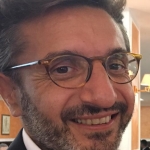
Cleto Carlini
Municipality of Bologna
An expert in transport planning, since 2007 he has been Director of the Sustainable Mobility and Infrastructure Sector of the Municipality of Bologna and coordinates activities in terms of planning, design and management of city mobility.
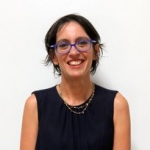
Maria Lapietra
Municipality of Torino
PhD in "Transport Automation and Computerisation", she has worked in Italy and abroad carrying out urban redevelopment plans, teaching courses on mobility and Local Public Transport. In July 2016 she was appointed Councillor for Transport and Infrastructure in the City of Turin by the Mayor Chiara Appendino.
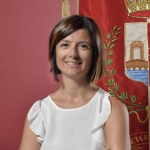
Roberta Frisoni
Municipality of Rimini and ANCI
Graduated in Political Economy with a PhD in Public Policies, she worked for several years in the field of economics and regulation of transport systems. In 2016 she was appointed Councillor for Mobility, Maritime State Property, Planning and Land Management in the Municipality of Rimini.
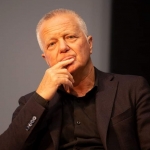
Roberto Mascarucci
University of Pescara
The Professor Roberto Mascarucci is in charge of territorial planning, strategic territorial planning, environmental assessments and feasibility of interventions. He has published several books and over one hundred scientific papers on these topics.
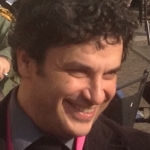
Luigi Pingitore
INU
Former INU Secretary General, he studied Architecture in Firenze and obtained a master's degree in City and Territory Management in Roma. He is a professor on contract and in other public and private training cycles and has gained, among other things, extensive experience in urban and territorial plans and programmes.
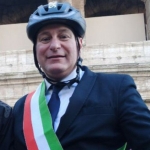
Francesco Casciano
Municipality of Collegno and ALI, Italian Local Authorities
Francesco Casciano, a cycling enthusiast and urban cyclist by choice, mayor of Collegno since 2014 was appointed first Mayor of the Bici d'Italia in July 2020. The travel revolution is at the basis of his policies in Collegno between environmental, social and economic utility and a pandemic lockdown.












Contributions